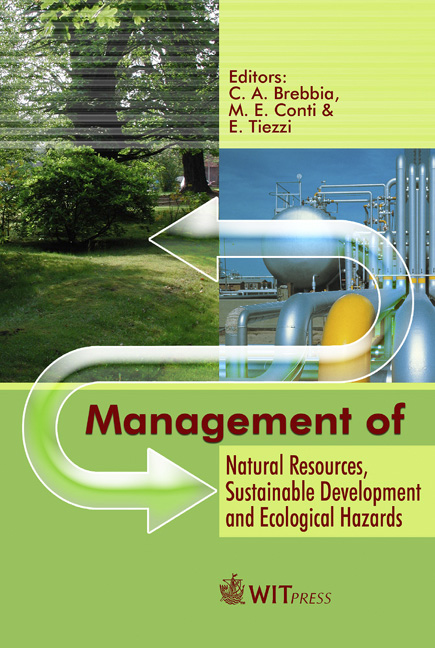Coral Reefs: Threats And Future Focusing In Over-fishing, Aquaculture, And Educational Programs
Price
Free (open access)
Transaction
Volume
99
Pages
8
Published
2006
Size
887 kb
Paper DOI
10.2495/RAV060301
Copyright
WIT Press
Author(s)
L. Molina Domínguez, F. Otero Ferrer & M. Izquierdo López
Abstract
Coral reefs cover less than 0.25% of the marine environment; however their importance is not only justified by their beauty but also because coral reefs provide food and livelihood to millions of people located in communities around the world especially in developing countries. They are considered the \“rainforest of the sea” (Spalding et al., 2001) because of their high productivity and specially their biodiversity. In fact, coral reefs support approximately 4000 species of fish, about 800 of reef-building corals and more than a thousand other invertebrates and sponges. Besides, a great number of species use these ecosystems as reproduction or husbandry areas. 20% of the world’s coral reefs have been effectively destroyed and show no immediate prospects of recovery (Wilkinson 2004). The global threats to coral reefs began to raise alarm after the Rio World Environmental Summit in 1992 and the 7th Symposium of Coral Reefs, starting the first calls in order to stop the decline and to provide effective protection for these ecosystems. The threats affecting coral reefs are great and the degree of damage will depend on the different areas of coral reefs locations. The threats can be classified into three groups (note that two are caused directly or indirectly by human activity): - Natural disasters, such as tropical storms, inundations, earthquakes, volcanoes, etc. To a great extent coral reefs are generally considered to have a strong potential to recover. - Global climate change, such as increments of sea surfaces temperature, rising CO2 levels and other pollutants. - Direct human pressure, such as over-fishing, not only for food consumption but also for aquariology purposes, development of coastal zones (urban, industrial, tourism, and transport coral reefs uses). Against these threats some possible solutions can and must be developed. This paper focuses on over-fishing and the relationship between aquariology and aquaculture. Keywords: coral reef, aquariology, aquaculture.
Keywords
coral reef, aquariology, aquaculture.





